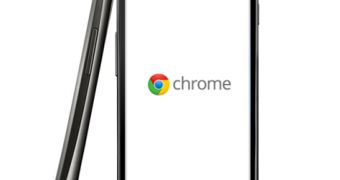Chrome will finally overthrow IE as the top browser in the world this year, according to data from everyone except Net Applications, at least. It will be a well-earned victory for Google and to a degree, for Mozilla, which first challenged IE's monopoly eight years ago.
But it won't mean much, not in the long run, since the desktop PC is on its way out. Granted, it will take years for the PC to become obsolete, but it will be a niche market sooner than you'd expect.
With everyone browsing from their phones and tablets, the fight (and money) is moving to the mobile space.
While Mozilla made us realize that a browser choice was possible and Chrome made us realize that a third-party browser is better and preferable to anything that comes built-in, the hard-won victories won't mean much.
The mobile browser market is very different to the desktop one and a lot more limited. Android has a healthy competition, but the market is dominated by the default browser that comes built-into the operating system, an advantage IE has enjoyed with Windows.
Elsewhere, Dolphin, Opera, Firefox, Chrome and others are fighting for a piece of the pie. Chrome may be in a privileged position as it's built into Google-backed, -built devices, i.e. the Nexus line and Motorola devices.
At least with Android, users have the opportunity to switch browsers and browser makers have a chance to compete on equal footing.
Android is the exception to the rule, Apple's iOS won't allow third-party browsers except in a severely limited form. Chrome is gaining Steam on iOS, but it's not the same Chrome from the desktop or Android. If you want to make the most of your iOS device, Safari is still the only way to go.
Likewise, Microsoft, while complaining about Google not building a native YouTube application, won't allow third-party browsers on Windows Phone or the tablet version of Windows 8. The upside of this is that Microsoft's market share in the mobile space is so small, it doesn't really matter what it does.
It's going to take something like Mozilla's Firefox to shake things up, but that's highly unlikely. People have gotten used to the idea that they don't actually own their devices and can only do what Microsoft, Apple and, to a lesser degree, Google allow them to do, unfortunately.

 14 DAY TRIAL //
14 DAY TRIAL //